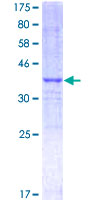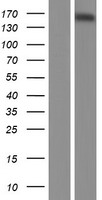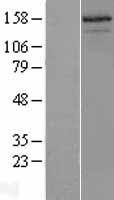order histories, retained contact details for faster checkout, review submissions, and special promotions.
Forgot password?
order histories, retained contact details for faster checkout, review submissions, and special promotions.
Locations
Orders Processing,
Shipping & Receiving,
Warehouse
2 Shaker Rd Suites
B001/B101
Shirley, MA 01464
Production Lab
Floor 6, Suite 620
20700 44th Avenue W
Lynnwood, WA 98036
Telephone Numbers
Tel: +1 (206) 374-1102
Fax: +1 (206) 577-4565
Contact Us
Additional Contact Details
order histories, retained contact details for faster checkout, review submissions, and special promotions.
Forgot password?
order histories, retained contact details for faster checkout, review submissions, and special promotions.
NCOA3 / SRC-3 / AIB1
nuclear receptor coactivator 3
Nuclear receptor coactivator that directly binds nuclear receptors and stimulates the transcriptional activities in a hormone-dependent fashion. Plays a central role in creating a multisubunit coactivator complex, which probably acts via remodeling of chromatin. Involved in the coactivation of different nuclear receptors, such as for steroids (GR and ER), retinoids (RARs and RXRs), thyroid hormone (TRs), vitamin D3 (VDR) and prostanoids (PPARs). Displays histone acetyltransferase activity. Also involved in the coactivation of the NF-kappa-B pathway via its interaction with the NFKB1 subunit.
| Gene Name: | nuclear receptor coactivator 3 |
| Synonyms: | NCOA3, ACTR, AIB1, BHLHe42, CAGH16, CBP-interacting protein, CTG26, AIB-1, P/CIP, TNRC14, TRAM-1, Nuclear receptor coactivator 3, PCIP, RAC-3, SRC3, TNRC16, KAT13B, NCoA-3, SRC-3 |
| Target Sequences: | NM_006534 NP_006525.2 Q9Y6Q9 |







If you do not find the reagent or information you require, please contact Customer.Support@LSBio.com to inquire about additional products in development.









